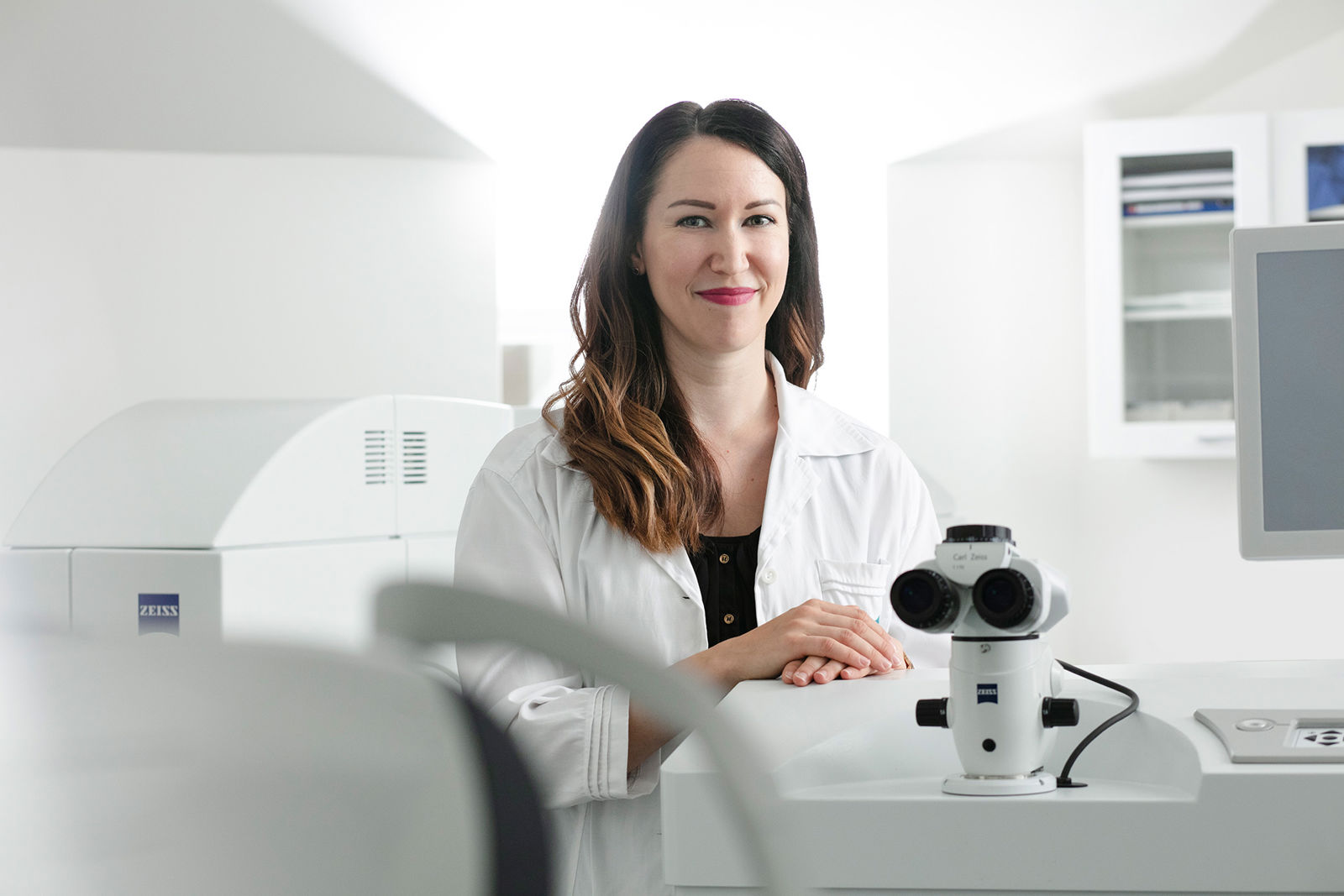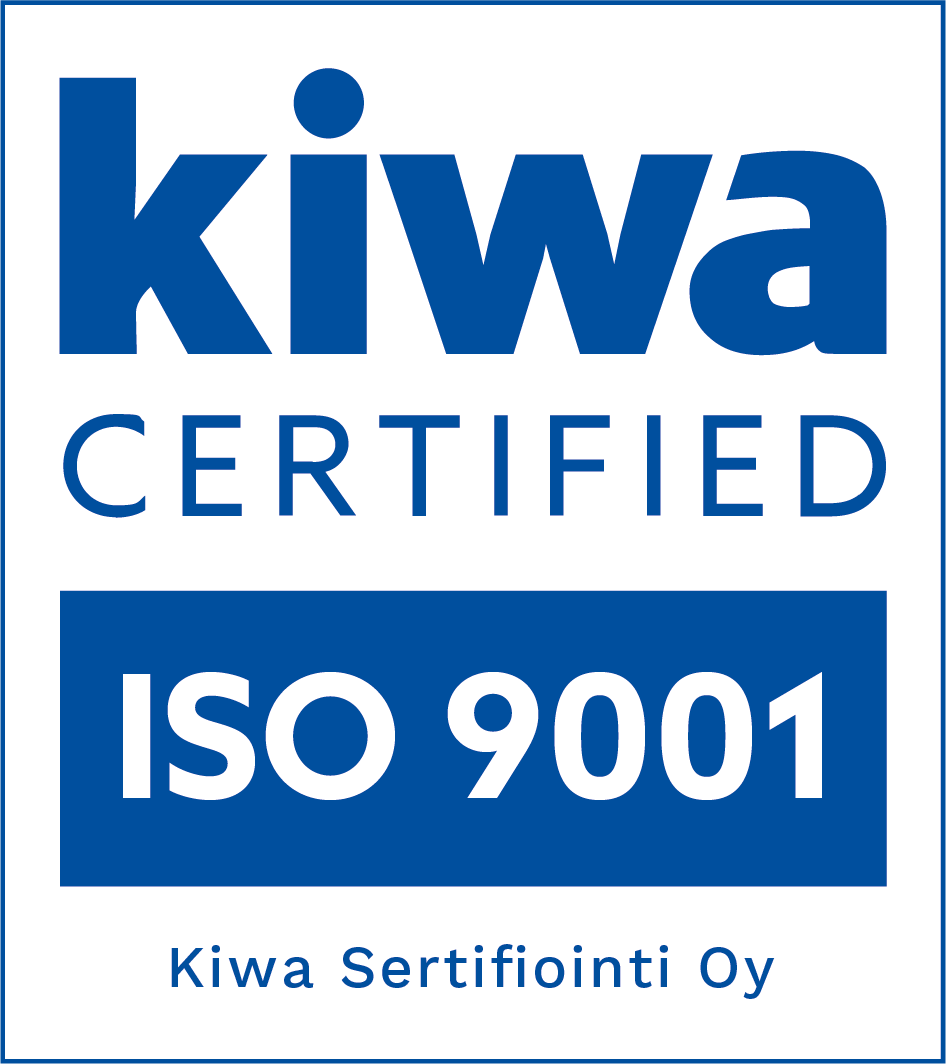

Refractive lens exchange
Now those with presbyopia can also enjoy a life without glasses!
Presbyopia is due to the lens in the eye becoming stiff and not changing shape in order to focus on objects at different distances – it is not possible to accommodate any more. For the majority of people, this happens gradually from the age of 40, but it affects everyone sooner or later as presbyopia is a normal weakening of near vision that goes along with ageing.
People with presbyopia need different strengths of lens for distance vision and near vision and possibly also for midrange vision. Finding suitable lenses can be problematic and people are often forced to have different glasses for different activities. In addition to distance and near vision, we also need to have good midrange vision:
- Distance vision: driving, watching TV, sports, films, theatre etc.
- Near vision: reading, needlework, carpentary etc.
- Midrange vision: work involving monitors, cooking, car instrumental panel, etc
Who is refractive lens exchange suitable for?
Refractive lens exchange is particularly suitable for people who are over 45 and use progressive glasses and those that have the beginnings of cataracts..
Comprehensive pre-examination with the hospital optician
The refractive lens exchange process begins with a thorough initial evaluation during which our hospital optician charts your eyes’ health status and measures the astigmatism and intraocular pressure of your eyes and makes a corneal map of your eyes. In addition to this, the strength the lenses need to have is determined. The optical tomography of the retina (OCT) is performed when necessary.
If refractive lens surgery is deemed possible for you, we will book you a paid appointment with the operating eye surgeon. The surgeon will analyze the preliminary examinations made by the hospital optician, evaluate the health of your eyes and choose the best lens options for your eyes.
Optimal vision for a functional everyday life with refractive lens exchange!
During the refractive lens extraction, the eyes’ own lenses are replaced with multifocal lenses. We strive to optimise the artificial lenses strength so that strong distance and near vision is achieved. The operation is performed using ultrasound and with the help of the modern technique phacoemulsification. The procedure is quick and painless and patients can go home only one hour after the surgery.
After refractive lens exchange
You return home quickly following the refractive lens exchange procedure, only one hour after the operation. The convalescence period is short and your vision gradually clears over the course of the subsequent days. Antibiotic drops are used for a week or so. You need 1–2 weeks’ sick leave, depending on how strenuous your work is.
Why do we recommend refractive lens exchange for people with progressive glasses?
It is possible to get rid of glasses needed for distance vision with the help of traditional refractive surgery (SMILE, FEMTO-AMARIS, LASIK, PRK). In practice, however, people with presbyopia always need reading glasses and sometimes also glasses for using when working on a computer.
Laser vision correction frees you from glasses for distance vision, but those with presbyopia always need reading glasses and sometimes also glasses for use when working with monitors following laser vision correction.
Refractive lens exchange, however, corrects not only near vision and distance vision, but also midrange vision as well. The majority of those who have undergone refractive lens exchange never need glasses again.

Book a pre-examination with an optician for presbyopia lens surgery!
Our hospital optician maps the health of your eyes using extensive examinations and assesses whether refractive lens surgery is suitable for you.
Visiting our optician's free preliminary examination does not obligate you to make an appointment for surgery.
Contact lenses cannot be used for a week before the preliminary examination or surgery. The examination will use pupil dilating eye drops that blur near vision for the rest of the day.
Next available appointments
Specialists
Price list
Optician's Pre-examination
Explore the serviceinc surgeon's evaluation
- Hirvo Sanni, Optician
- Hotti Leea, Optician, Occupational Optometrist
- Meriluoto Ulla, Optician, Occupational Optometrist
- Valonen Emilia, Optician
- Ylinen Kirsi, Optician
Eye surgeries
Follow-ups
- Kukkonen Kirsi-Tiina, Specialist in ophthamology, Ophthalmic surgeon
- Oksman Petri, Specialist in ophthamology, Ophthalmic surgeon
- Suominen Sakari, Specialist in ophthalmology, eye surgeon
A clinic fee of 29,70 € will be added to the price of the appointment. The Kanta fee is 3,30 € and is charged for all visits where information is saved to the My Kanta Pages, except for free consultations. Specialist-specific prices can be found in the specialist’s profile.
-
 ICL surgery
ICL surgeryICL surgery (implantable collamer lens) is an alternative to laser surgery, especially for correcting severe nearsightedness.
-
 Refractive lens exchange
Refractive lens exchangeGet rid of your progressive glasses with a refractive lens exchange! The refractive lens exchange is sometimes called a presbyopia surgery as it corrects near vision. But in addition to presbyopia, the refractive lens exchange also corrects distance vision and any astigmatism.
-
 Cataract surgery
Cataract surgeryDo glasses no longer help? Does it feel like your vision is blurry despite having recently received new glasses? Have the ophthalmologist specialising in cataracts excaminate whether cataract surgery could be for you. Cataracts can be removed, even before your vision has deteriorated markedly. Make an appointment with one of our experienced ophthalmologists.
-
 Ophthalmologist
OphthalmologistIf you have problems with your vision or your eye looks different, you should consult an ophthalmologist. The ophthalmologist diagnosis and treats eye diseases and can examinate errors of refraction and have them corrected.
-
 Optician's pre-examination
Optician's pre-examinationConsult the hospital optician and find out if you can correct your refractive error with laser vision correction or refractive lens exchange. During the pre-examination, your eyes are photographed and measured by the hospital optician using various instruments in order to work out which method is most appropriate for your eyes.
-
 SMILE laser vision correction
SMILE laser vision correctionThanks to the latest SMILE technology, the eye's refractive error can be corrected without the traditional corneal flap. This keeps the surface layer of the eye more intact and reduces the risk of dry eyes. Studies show that the treatment results of SMILE surgeries are excellent. Here in Eira we are using the latest laser equipment Zeiss VisuMax 800.






